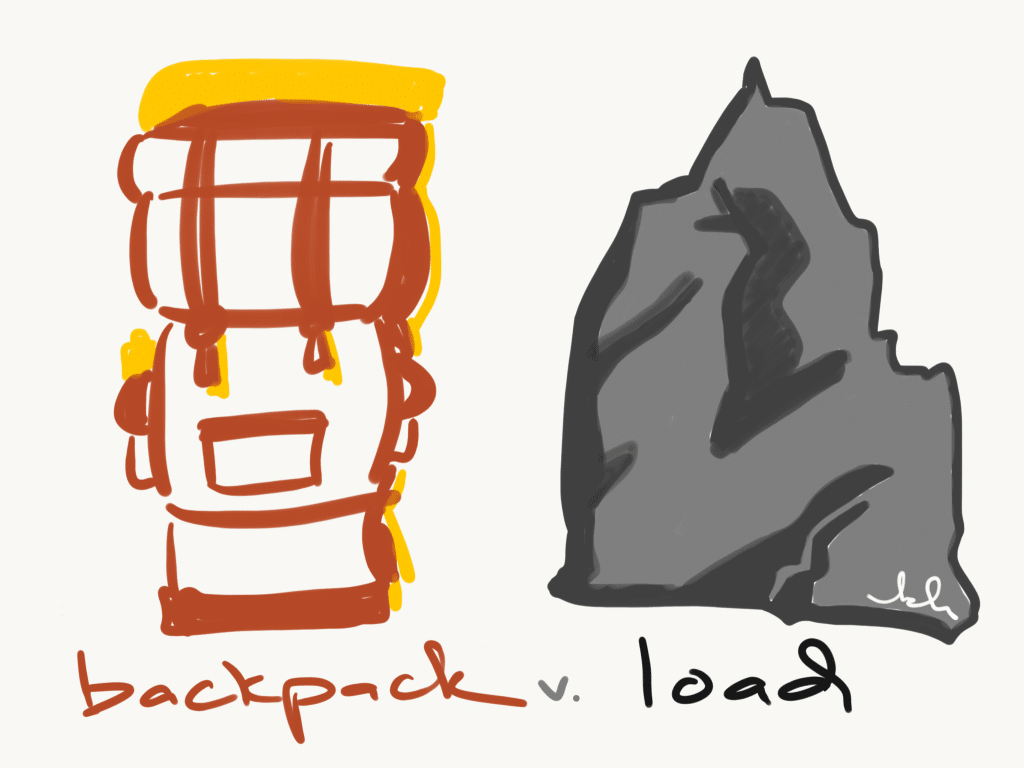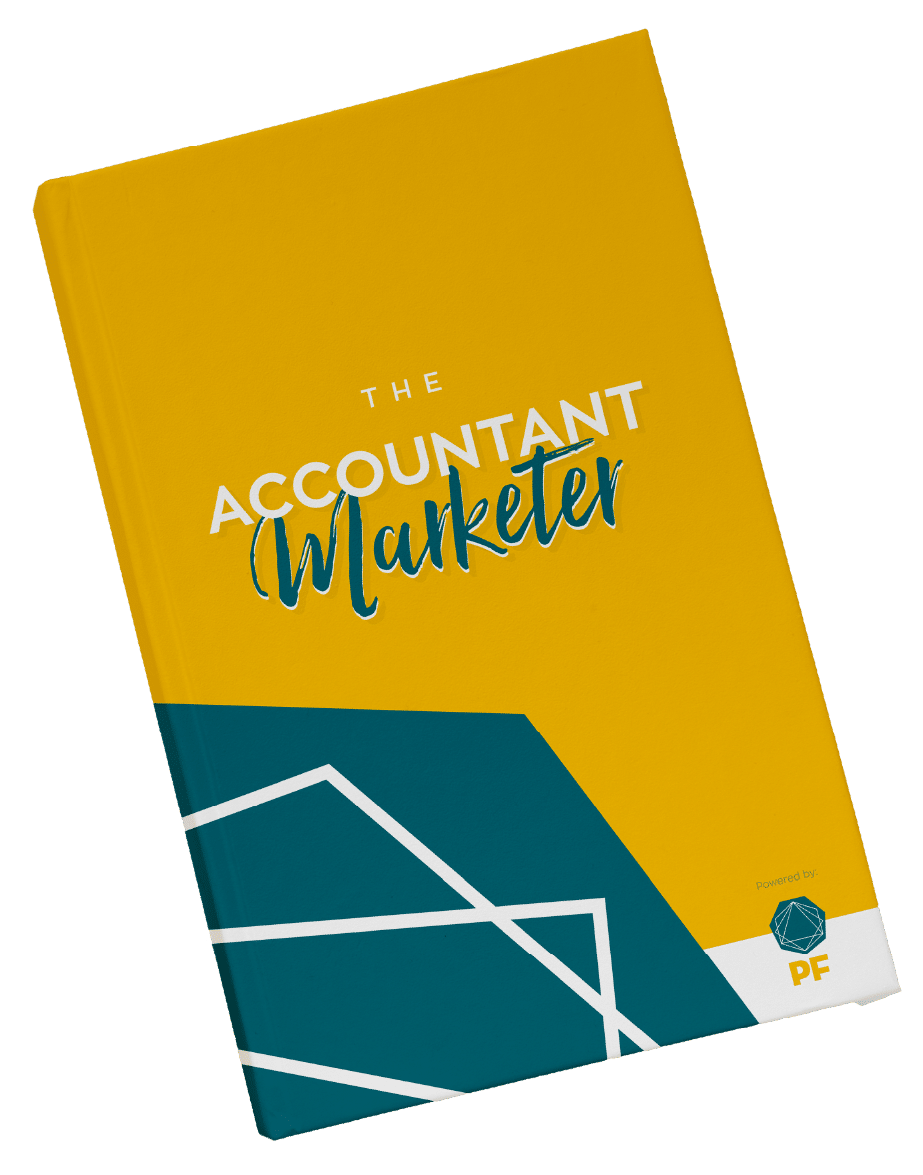Many problems we shoulder are heavy.
They weigh on us. Difficult conversations, hard truths, exhausting grief. Issues with clients, training for team members, differences of opinion with family. The impact of the pandemic on ourselves, our business, our life.
We carry them. We shoulder them, we hoist them onto our back and move slowly, step by step, bearing our own burden. Because it’s ours to carry, and no one can carry it for us.
There’s a verse in the Bible when read in the English translation could be very confusing. It says “Bear one another’s burdens…for each must bear their own burden.”
I always found that a bit confusing, even if I thought I understood the concept. Everyone help each other, because everyone’s got their own stuff to carry.
Then I discovered in the original Greek, the words mean more like “backpack” and “load”.
The burden you have to carry – only you, and no one can carry it for you – is like a backpack. It feels like a load, and it’s heavy, but you CAN carry it. You can and you must, because it’s your responsibility and your thing to deal with.
Your backpack could be a little thing – like the one I use for short day trips when walking. It fits snugly on my shoulders, fits a flask and a tin mug and a lunch and some snacks, maybe a bottle of water and some plasters and an extra pair of socks. If I really stuff it in, I can fit my jacket or hoodie in it when the day goes from cold to warm.
I barely notice it’s there. (At the end of the 27 miler I did recently, though, I can tell you I felt even that light backpack!)
Your backpack could also be more of a rucksack. One of those big ones with straps hanging off and a sleeping bag tied on top and a water bottle hanging from one side and a tin mug from the other. The kind I used when backpacking round different countries in Europe when I was younger. All your worldly goods and all that.
It’s still heavy – and at the end of a long day it’s very, very heavy. But it’s still yours. You have your backpack (or rucksack), and your traveling companions have theirs. You wouldn’t ask one of them to carry it for you because they’ve got their own backpack, and it’s heavy too.
Not impossibly heavy, but heavy. Some days you wobble or struggle a little, but you do it.
A load though….that’s like a boulder. A big rock. A huge burden. Something you literally can not – and are not supposed to – carry alone.
You might even manage it for a few steps, or if you’re really determined, a mile or two. You stagger, you reel, you collapse, you start again.
Eventually you lie there in the trail dust (or muck) and stare at this huge boulder and say “this is too big”.
You wait for help to arrive. Or you call for it. And it might take two people, or five, or ten. There might need to be a whole crowd of people to gather round and carry that load. Together, you can. Alone, you cannot – and it will break you to try.
When we look at the problems we’re facing, each of us, some of them are backpacks. They’re heavy and we feel like we can’t do it, but actually we can. “Bear them we can, and if we can, we must.”
“The troubles of this proud and angry dust
Are from eternity, and shall not fail.
Bear them we can, and if we can,
We must.
Shoulder the sky, my lad, and drink your ale.”
A.E. Housman
Whatever problem you’re facing today – or problems – it helps immensely to ask yourself, “Is this a backpack, or a load?”
Sometimes you’re not sure.
You carry it for a while, stumbling and staggering, and sit in the middle of the trail. Do you pick it up again? Is it a backpack, or a load?
It’s okay to try: it’s right to try. Loads often dress themselves up like backpacks, and it’s hard to tell. They look like they have straps and can be lifted onto your back….and then you try, and it crushes you, and you’re too weary.
Or sometimes we think it’s a load, and we feel too weak, and we don’t even try: when actually it’s just a heavier backpack than you expected. You need to shift the weight, maybe remove a few things, pace yourself. You can do it.
Here are a few things to ask yourself to help you decide:
- What is this that I’m carrying? What actually is it?
- Do I have all the training & knowledge I need to carry this?
- How long have I been carrying this? How is it affecting me, my life, my family, my work?
- Is there anywhere I can ask for help?
One of the best things you can do with something that feels heavy is to ask for a little help. See if a little direction, or training, or questions, or even a listening ear can shift the problem so that you can continue carrying it. It’s a backpack.
And if you ask for help and try again and realise it is beyond your ability….maybe it’s got more weight than you’ve trained for, or you’ve hurt your leg and it would be unwise to carry it because of the impact it will have on that bone….well, maybe it’s a load, after all. Maybe even just for now, it’s a load.
Oh – and I cannot stress enough how important it is not to compare your backpack with others.
Do not compare your backpack with others’ backpacks.
Do not compare your load with others’ loads.
If you stop and look around and say “this has to be a backpack because it’s the same size as what this other person is carrying”, that’s a very dangerous exercise.
Even if they are carrying what looks like a tiny little backpack, you don’t know what’s in it. Massive big rocks? Socks? Water? You don’t know. The apparent size of the thing is deceiving.
And even if you know what’s in it and you’ve carried a similar weight before and you think you know….
..It’s still not yours to carry right now.
You are not them.
They are not you.
My sister trains for marathons and ultras and 100k’s…so what her body is able to withstand is very different from mine. She runs an ultra and is mostly recovered in a few days. I’m two weeks on from walking an ultra, and my foot is still healing.
Some people have a difficult conversation to face and it takes them three days (or three weeks or months) to nerve themselves up for it. Other people have them every day and it doesn’t affect them at all.
Some people experience a loss and deal with it by working or writing or traveling…and others have to process it with crying and sadness and heaviness and pain.
You can never tell whether someone else’s problem is a backpack or a load. Only they know that. You can help ask questions, and offer to share the weight, and provide encouragement and training…but they have to decide which it is, for them.
Your problem still has to be carried – by you, or by you plus others. But knowing which one it is will make it more bearable, and you’ll know what to do. You’ll ask for help, you’ll take a rest, you’ll try again, you’ll get support.
And one day, you’ll arrive. And set the backpack – or load – down, and walk on free. Lighter. At rest.
And you’ll be glad you stopped to see which one it was, there back on the trail.
Keep going – and do ask me for help. I’d be glad to ask questions or share some thoughts or direction, even if it is your backpack to carry.
What problem is weighing heaviest on you right now? Do you know if it’s a backpack or a load?



